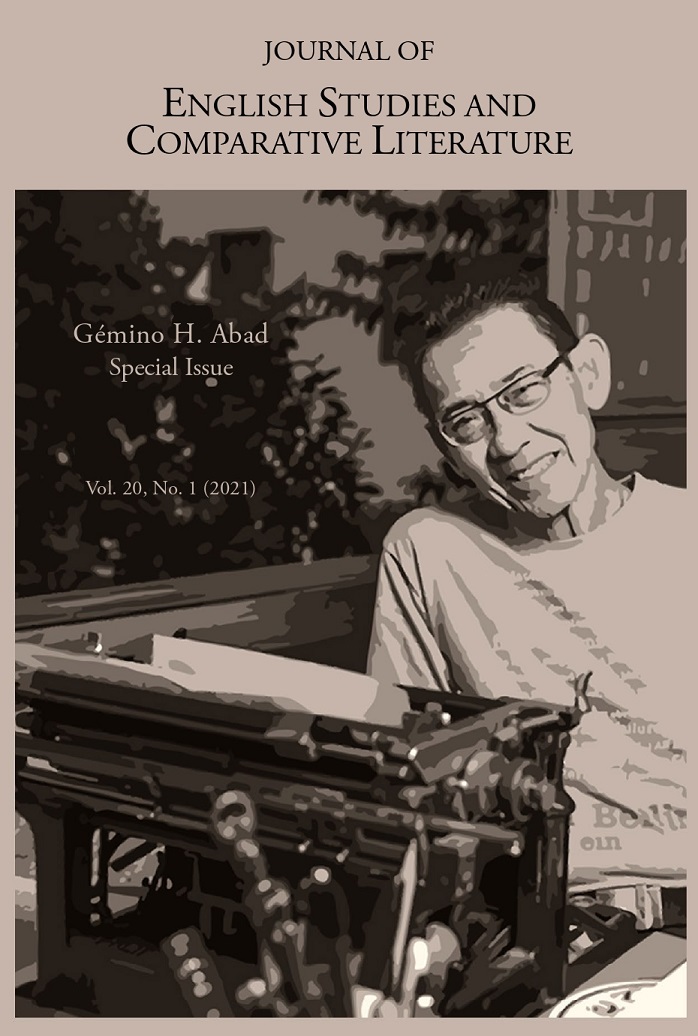On the Barest of Boughs: A Poetics of Insignificance in the Contemporary Philippine Haiku
Abstract
The thesis of this essay is straightforward: many contemporary Filipino poets working from the haiku, tanka and other Japanese-inspired forms, appropriate them in their own way, departing largely from Japanese literary aesthetics. Thus silence is transformed into elaboration, evanescence into what I call “a statement of eternity,” the concrete into philosophical abstraction, the ukiyo (scenes of the everyday, or the fleeting world) converted into direct social, political or ideological thematic frames, and the kigo (seasonal word) and kireji (cutting word) discarded in favor of more ‘modern’ approaches to poetic enjambment and phrasing, the interjection of the poet’s sentiment into the scene instead of restraint, and lastly, nature as recessed in many cases instead of being the pivot around which the meditation or reflection is launched. The departure from the unity of subject and object so upheld in Japanese aesthetics reveals that many of these poets work from a different sensibility, a Filipino sensibility, a rhetorical background rooted in “statement-making.” While there are some accomplished works, they are few and far between, and thus making only the traditional or normative meter (5-7-5 for the haiku, or 5-7-5-7-7 for the tanka) a skeletal trace or spectral presence. The haikai and renga (linked verse forms) are self formulated, rather than the communal activity in which spirit it is written. It is therefore a curious paradox that what seems to have been initially inspired by Basho’s ideal is sourced elsewhere, such as in the haikai tradition that made fun of courtly manners and language by commoners as parody or play. More significantly, it directly relates to the Heian tradition of the inconsequential, as seen in Sei Shonagon’s Pillow Book, where she employs zuihitsu (poetic musings, or literally the wanderings and meanderings of the brush), commenting in catalogue form items like Disagreeable Things, Things No One Notices, etc. This results in a kind of hybridity, a work of Filipino sensibility leaning towards statement-making, yet dressed up in what is putatively a subtle, revelation-driven meditation.
Published
2021-05-09
How to Cite
CHAVES, Thomas David.
On the Barest of Boughs: A Poetics of Insignificance in the Contemporary Philippine Haiku.
Journal of English Studies and Comparative Literature, [S.l.], v. 20, n. 1, may 2021.
ISSN 0119-1721. Available at: <https://journals.upd.edu.ph/index.php/jescl/article/view/7632>. Date accessed: 30 aug. 2025.
Issue
Section
Literary Criticism


